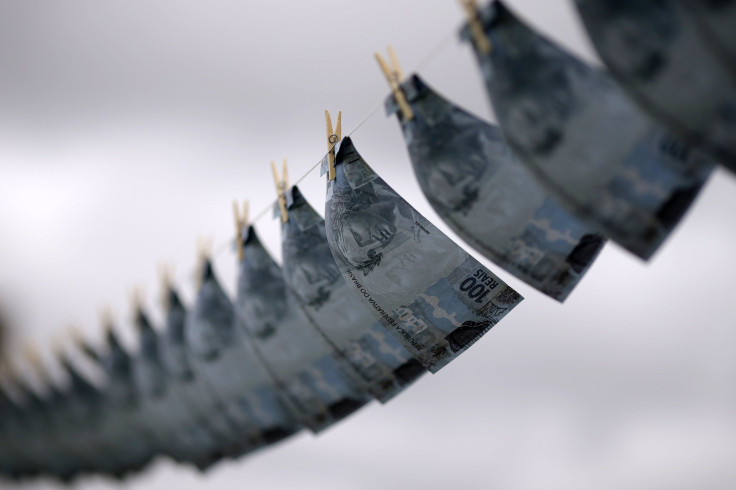China's 'Black Monday': Asian Shares Plummet As Shanghai Rout Accelerates

Asian currencies, commodities and shares plummeted to record lows Monday despite Beijing authorizing the country’s state pension fund over the weekend to invest in stock markets to arrest the slide. Investors in Asia were reacting to Friday’s steep sell-off on Wall Street, when the Dow Jones industrial average fell more than 500 points -- its worst single-day session in four years.
In morning trade, the Shanghai Composite index tumbled 8.6 percent to 3,205.73 -- wiping out all of this year’s gains -- and Hong Kong’s Hang Seng index fell nearly 4.8 percent. The Shanghai Composite eventually ended the day down 8.5 percent at 3,209.31 Monday, making it the biggest one-day slump since 2007. The smaller Shenzhen Composite retreated 7.7 percent.
“Markets are panicking. Things are starting look like the Asian financial crisis in the late 1990s. Speculators are selling assets that seem the most vulnerable,” Takako Masai, head of research at Shinsei Bank in Tokyo, reportedly said Monday.
Taiwan’s stocks, meanwhile, tumbled more than 7 percent -- their steepest ever intra-day decline -- before clawing back to trade 3.7 percent down.
The pan-European FTSEurofirst 300 has lost 1.1 trillion euros ($1.26 trillion) in market value in August, putting it on track to its worst four weeks of trading since 2008, according to Reuters. In Monday morning trade, the index was trading more than 3 percent down as a sell-off in global stock gathered pace after China’s “Black Monday” trade.
London’s FTSE 100, trading 2.8 percent down, saw more than 40 billion pounds ($62.8 billion) wiped off during the day, the Guardian reported. And, the panic was also reflected across Asian stocks and U.S. stock futures. Earlier in the day, Australia’s S&P ASX 200 lost as much as $60 billion.
“Markets are afraid of further economic weakness in China, further pain in global commodity markets and uncertain about Fed and People's Bank of China policy -- what they will do and what the impact will be,” Kit Juckes, global strategist at Societe Generale, told CNBC.
Meanwhile, the Dow Jones index, which fell more than 500 points Friday, is predicted to shed 300 points, or 1.8 percent, after markets open Monday.
At the heart of the selloff are concerns that the Chinese economy may be slowing down more dramatically than previously thought. The country’s surprise move to devalue its yuan earlier this month -- an attempt to make its exports more competitive -- and a string of weak economic data has sparked a global sell-off that has so far seen more than $5 trillion wiped off world equity markets.
The gloom was shared across the region, prompting many to term it “Black Monday” even before the day’s trade was over. In India, the benchmark Sensex plunged more than 1,000 points in early trade -- its biggest intra-day fall this year -- while Japan’s Nikkei 225 closed 4.6 percent down -- its biggest intra-day drop in two years.
In South Korea, another country extremely vulnerable to any slowdown in China, the benchmark Kospi Composite index was down 2.5 percent. And, Australia’s S&P ASX 200 was off 3.5 percent.
"Investors are taking a safety-first approach to the stock market given the potential for instability related to capital flight from emerging economies," Ric Spooner, a market strategist for CMC Markets, said in a commentary.
S&P 500 futures were down 2.4 percent, suggesting that Friday’s 3.2 percent loss would be extended in New York on Monday.
“The market’s confidence in China’s ability to deliver growth remains in question,” Claudio Piron, a Singapore-based analyst for Bank of America Merrill Lynch, wrote Monday in a research report.
Meanwhile, the People’s Bank of China -- the country’s central bank -- is planning to provide much-needed liquidity to the nation’s banking system by introducing a reserve requirement ratio (RRR) cut, the Wall Street Journal reported Monday, citing unnamed officials and advisers to the central bank. The move, which can potentially release 678 billion yuan ($106.2 billion) in funds for banks, is aimed at countering the effects of a weaker currency by freeing up more funds for lending.
© Copyright IBTimes 2024. All rights reserved.






















